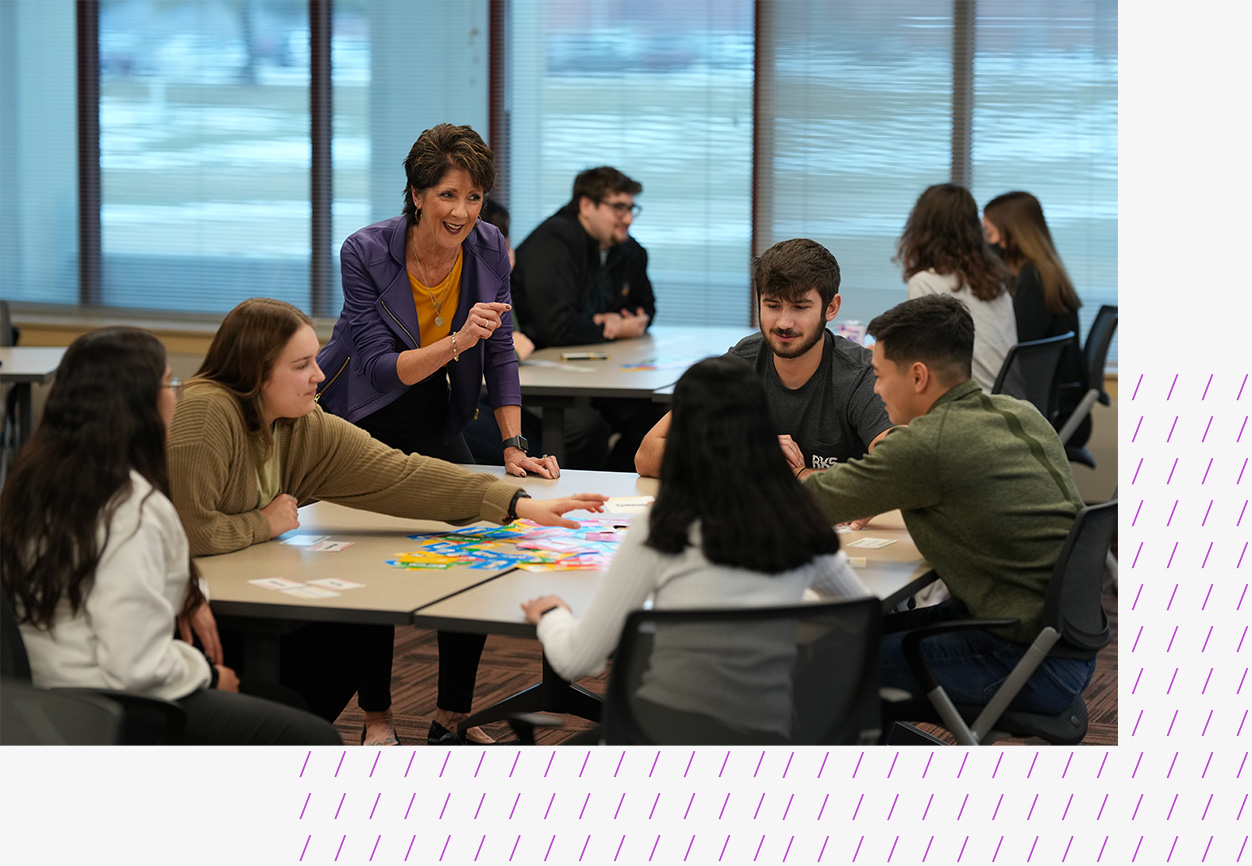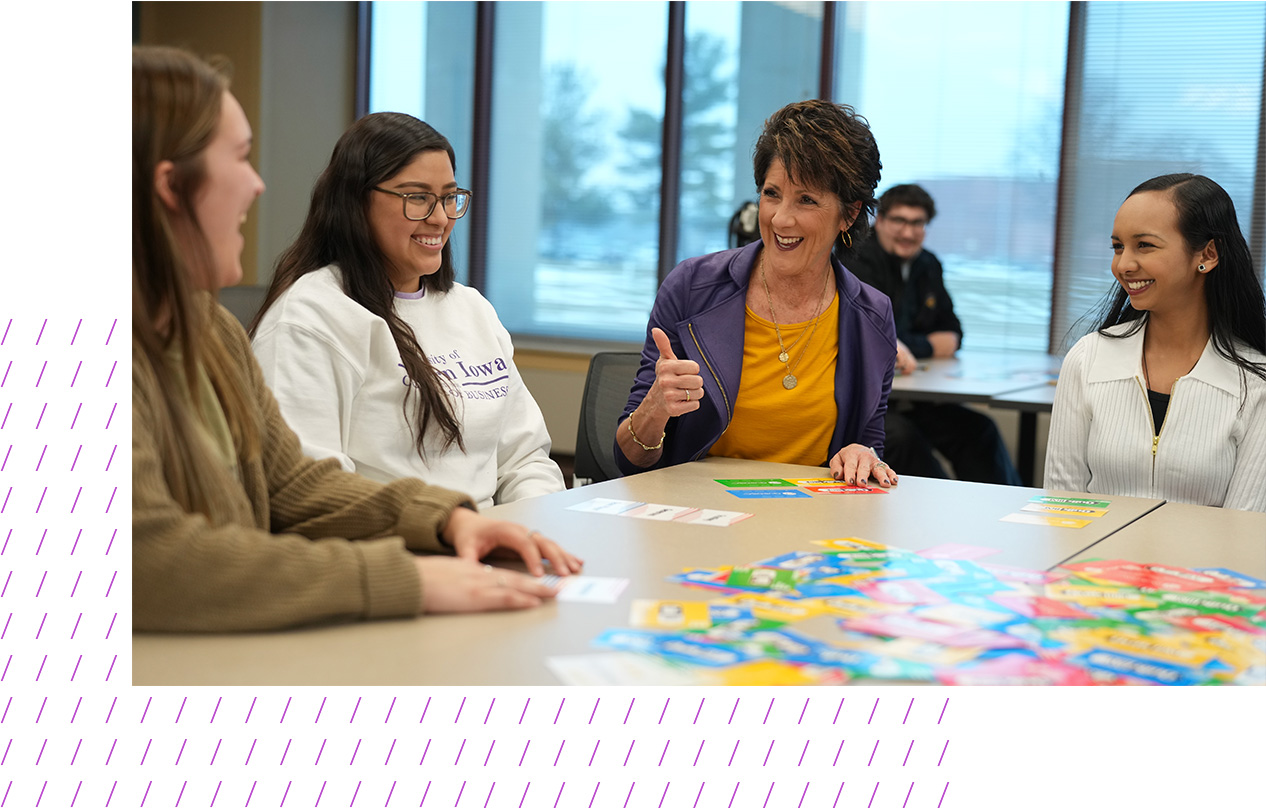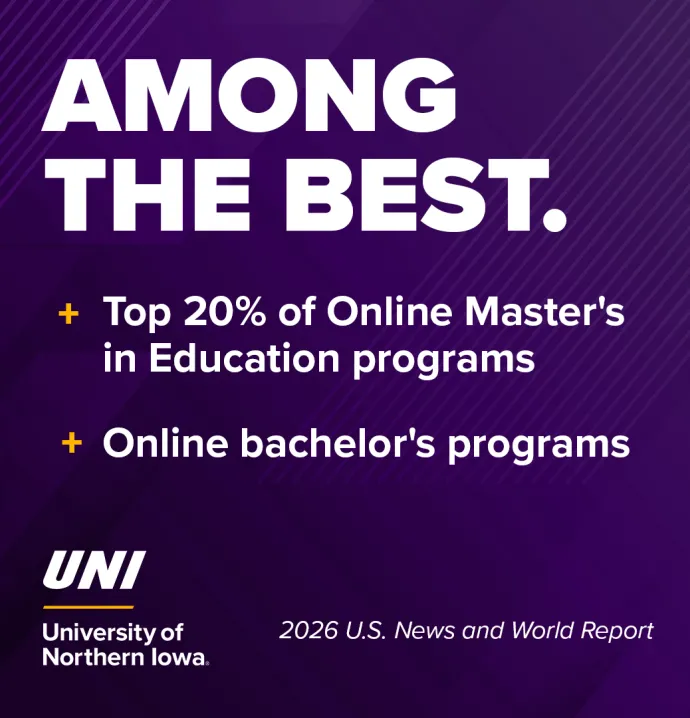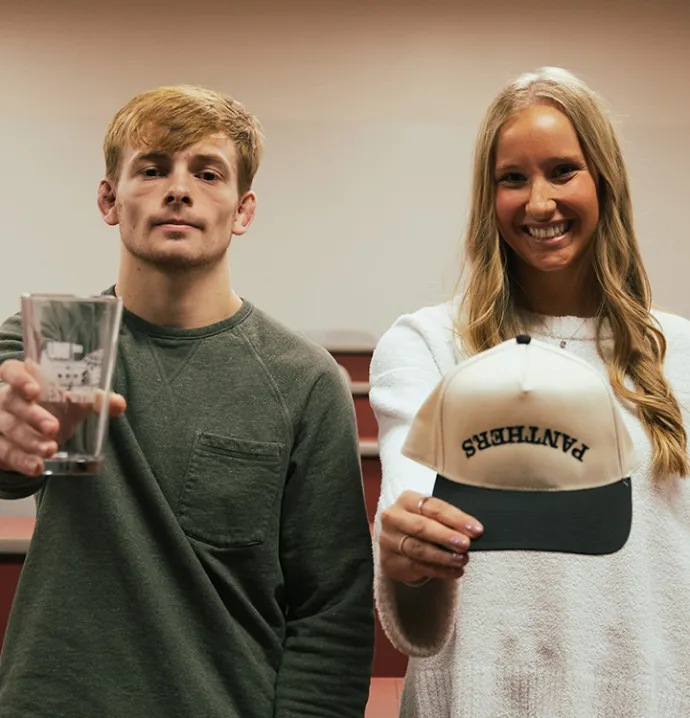The Professional Readiness Program® stands out as a key bridge between hard, soft skills
The Professional Readiness Program® stands out as a key bridge between hard, soft skills
Soft skills are essential in today’s competitive world of business. The ability to communicate, network and problem solve – beyond certain situations or topics taught in a classroom setting – often help graduates stand out in the workplace.
One unique and ever-evolving program within the Wilson College of Business has stood out as that bridge between “hard learning” in the classroom and crucial soft skills: the Professional Readiness Program® (PRP).
PRP was designed and launched to provide students with the comprehensive skills to be career-ready on day one. Skills like job interviews, Microsoft Excel, elevator pitches, networking and much more, all offered for free (zero credits) and required within the business curriculum.
The program embodies the Wilson College of Business mantra: Get Ready for Business.
A unique offering grows into a staple
Before 2007, business graduates on Wilson College advisory boards often provided feedback that they felt they lacked key soft skills in the workplace upon graduation. While they were ready to jump into their roles and “knew their stuff,” they felt they didn’t have the confidence or communication abilities to fully maximize their expertise.
“We heard that sentiment again and again from our advisory board members,” said Dean Leslie Wilson, who was associate dean and on the college’s executive advisory board at the time. “They knew they had the knowledge and skills needed for their jobs. Skills like accounting, strategic planning or analysis. But they didn’t necessarily feel confident in those soft skills. So much so, they felt less than their peers, even though they were better prepared.”

PRP was launched soon afterward to fill that void, making UNI one of the first to offer a soft-skill-focused program at the undergraduate level for all business students. It was structured similarly to today, with four levels – Business 1000, 2000, 3000, and 4000 – each providing unique professional development opportunities and bringing in professionals to advise and teach.
Programs like the PRP have popped up at universities around the country in the years since, but, UNI’s still stands out today, hitting some impressive milestones as it has grown into a crucial offering.
 It is a required part of the business curriculum, contributing to a solid foundation for learning. Students must take the first two levels of the PRP to graduate, learning skills such as choosing the right career path, personal strengths, and the importance of professional development.
It is a required part of the business curriculum, contributing to a solid foundation for learning. Students must take the first two levels of the PRP to graduate, learning skills such as choosing the right career path, personal strengths, and the importance of professional development.
 The Microsoft Excel certification at the Business 3000 level has become one of the most valuable offerings in the PRP. Since 2019, more than 1,600 students have earned it, with many placing among the top in the state and competing against students nationally.
The Microsoft Excel certification at the Business 3000 level has become one of the most valuable offerings in the PRP. Since 2019, more than 1,600 students have earned it, with many placing among the top in the state and competing against students nationally.
 The PRP is now aligned with the National Association for Colleges and Employers (NACE) career competencies, ensuring that students develop skills that are research-based and in demand by employers.
The PRP is now aligned with the National Association for Colleges and Employers (NACE) career competencies, ensuring that students develop skills that are research-based and in demand by employers.
 The Association to Advance Collegiate Schools of Business (AACSB) has routinely pointed to the PRP as a core tenant of Wilson College’s accreditation – a distinction belonging to fewer than 5% of business schools worldwide.
The Association to Advance Collegiate Schools of Business (AACSB) has routinely pointed to the PRP as a core tenant of Wilson College’s accreditation – a distinction belonging to fewer than 5% of business schools worldwide.
Today, the program is even more focused on creating well-rounded students, with course options in various “core competencies” that allow students to pick and choose skills relevant to their desired career path. The PRP does all this while still upholding its initial mission, to help students understand what it takes to constantly evolve, learn, and thrive in a business environment.
“Lifelong learning is so important,” Wilson said. “We’re building skills that allow students to learn every day, reflecting on their strengths and weaknesses, and how to continuously improve.”
Career ready, from day one
Without the PRP, Mikael Anderson (‘25) believes he wouldn’t have an internship opportunity for the summer of 2024. Before coming to UNI, Anderson was afraid to send the first email, to cold call potential employers, to step out of his comfort zone.
With the confidence gained through interview and elevator pitch preparation in the PRP, he knew the importance of making the first move. So that’s what he did in the spring of 2024. He cold-called a contact at Northwestern Mutual, which led to a conversation and then an internship. The supervisor lauded Anderson’s confidence in reaching out.
“I would always wait for them to reach out to me,” Anderson said. “What I’ve learned has already separated me from other students because I had the confidence to take that first step. The PRP definitely helped me realize that if I want something, I have to go out and get it.”
Anderson has completed two of the four levels of the PRP and plans to complete the last two, including Microsoft Excel certification this fall. He particularly enjoyed the workshops at the Business 2000 level, many of which brought in industry professionals to talk, teach and aid students in their professional development.
With two years of PRP experience under his belt, Anderson believes the program is a can’t-miss opportunity while at UNI.
I think it’s fantastic that UNI offers this. It separates UNI students from students at a lot of different schools. Soft skills are equally as important as hard skills. I definitely see myself using these skills when I start my career, and it’s honestly something that will lead to a lifetime of learning.
Madison Kraemer (‘23) had a similar, college-altering experience. The PRP helped get her through UNI. Early in her college career, Kraemer had difficulty adjusting, but she distinctly remembers walking into Business 1000 and connecting with the new speakers every week, learning to be comfortable while uncomfortable.
“There’s one speaker who still comes now, four years later, and I tell her that her presentation was one of the reasons I got through that first year of college,” said Kraemer, who worked part-time at the PRP as a student and later full-time as the program’s coordinator for a year after graduation. “I had such a positive experience because I gained a lot of professional and personal skills, like how to adjust to uncomfortable situations.”

Kraemer continued to take advantage of the PRP. She completed all four levels, which includes Business 4000. That course is particularly valuable, as it pairs students with a mentor in the industry, to learn and connect 1-on-1. The PRP maintains a strong alumni network in various industries that help students learn more about certain career paths and essential skills.
Kraemer stays in contact with her mentor and says it was a unique experience that you can only get at UNI. In some cases, that mentor connection can even lead to jobs.
“It’s more than soft skills – some people call them durable skills,” said Elisabeth Soliz, director for the Office of Professional Distinction, which oversees the PRP. “In that sense, these are really lifelong skills that take students from graduation to the rest of their careers. It has a huge impact on them.”
Staying on top of business trends
The PRP won’t stop evolving. There are plans to add more soft skill topics, including workshops for salary negotiations, financial health, evaluating benefits packages – subjects typically not covered in foundational business courses.
The Wilson College of Business constantly solicits feedback from alumni, industry professionals and students to refine offerings within the PRP.
“I think we can provide more options for the Business 3000 and 4000 levels, so students can find something that will directly support their career,” Soliz said. “We aim to incrase the number of students who go through the non-required parts of the PRP (Business 3000 and 4000).They will reap the benefits from it, and we’ll have more students even more equipped for their careers.”
Business is dynamic. Take, for example, the rise of artificial intelligence and how soft skills might become even more important to stand out in a technology-reliant world. The same can be said for an increasingly virtual work environment, where intentional communication and hard-to-teach soft skills are key.
That makes the PRP as important as ever. And the program’s ongoing development will reflect that.
“Business is constantly evolving,” Wilson said. “I don’t think we’ll ever be finished building the PRP. We are constantly scanning the environment for what is changing in the world and determining what we can do to better prepare students for those realities. That was always the goal of the PRP, and that will continue to be the mission as we move forward.”




